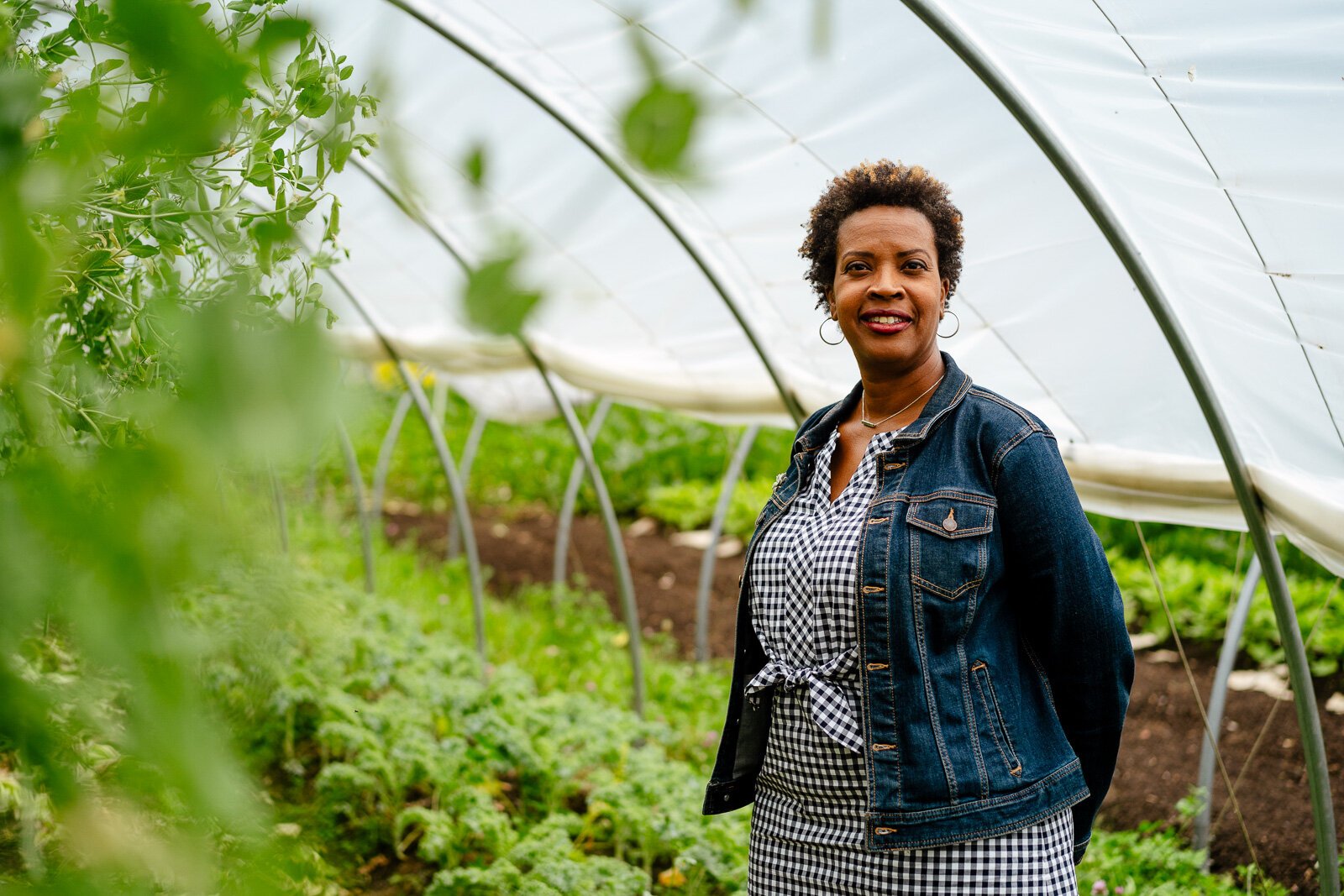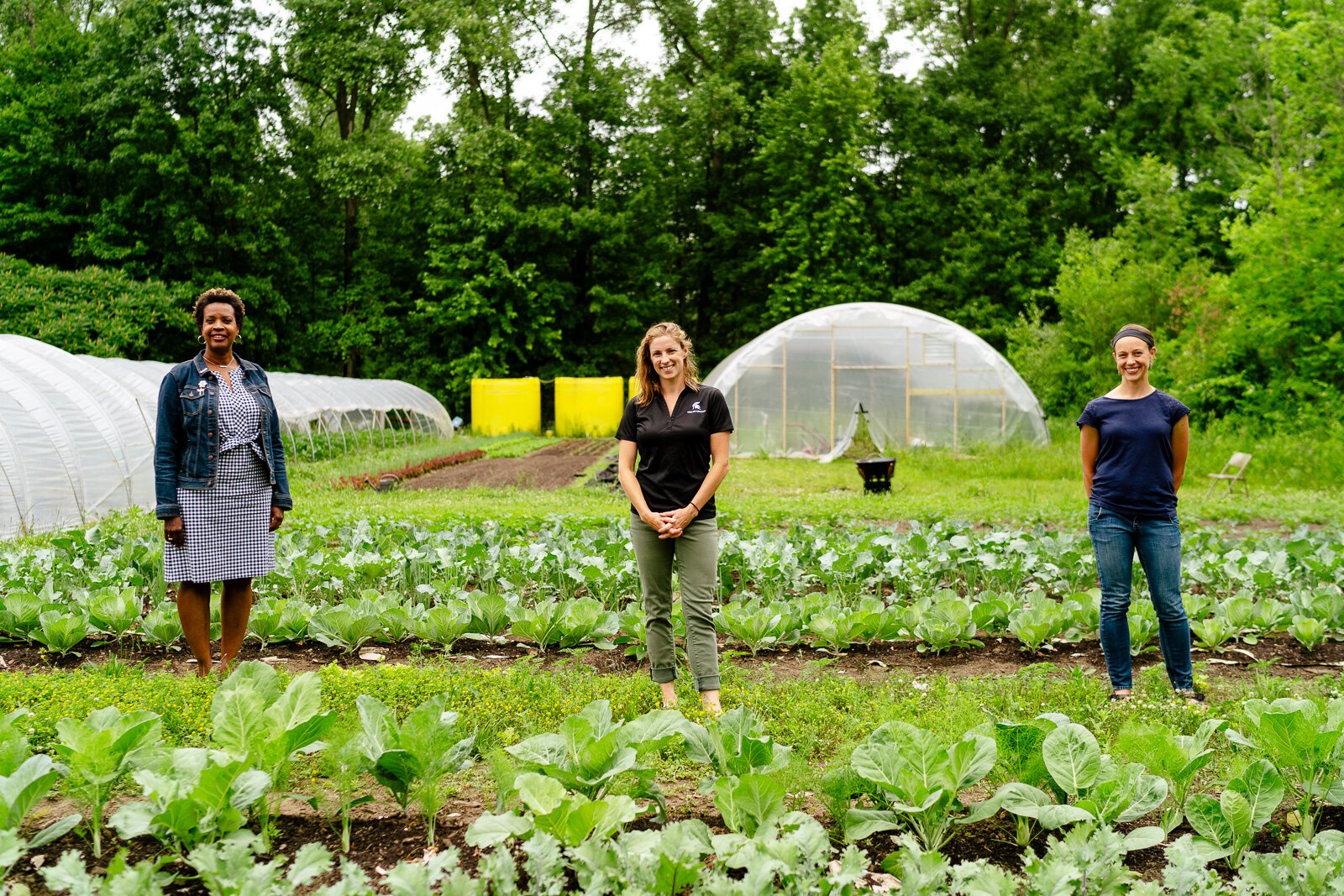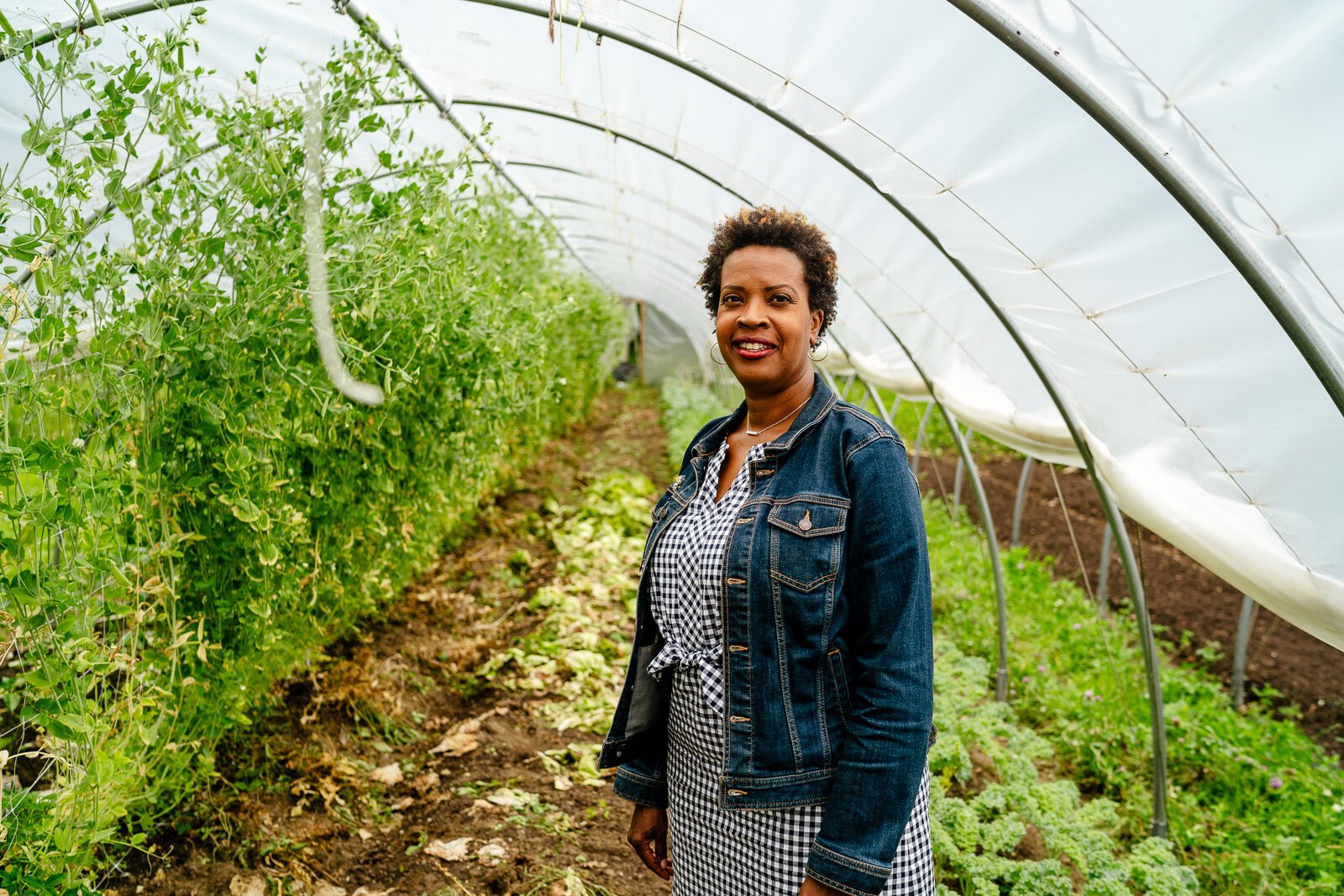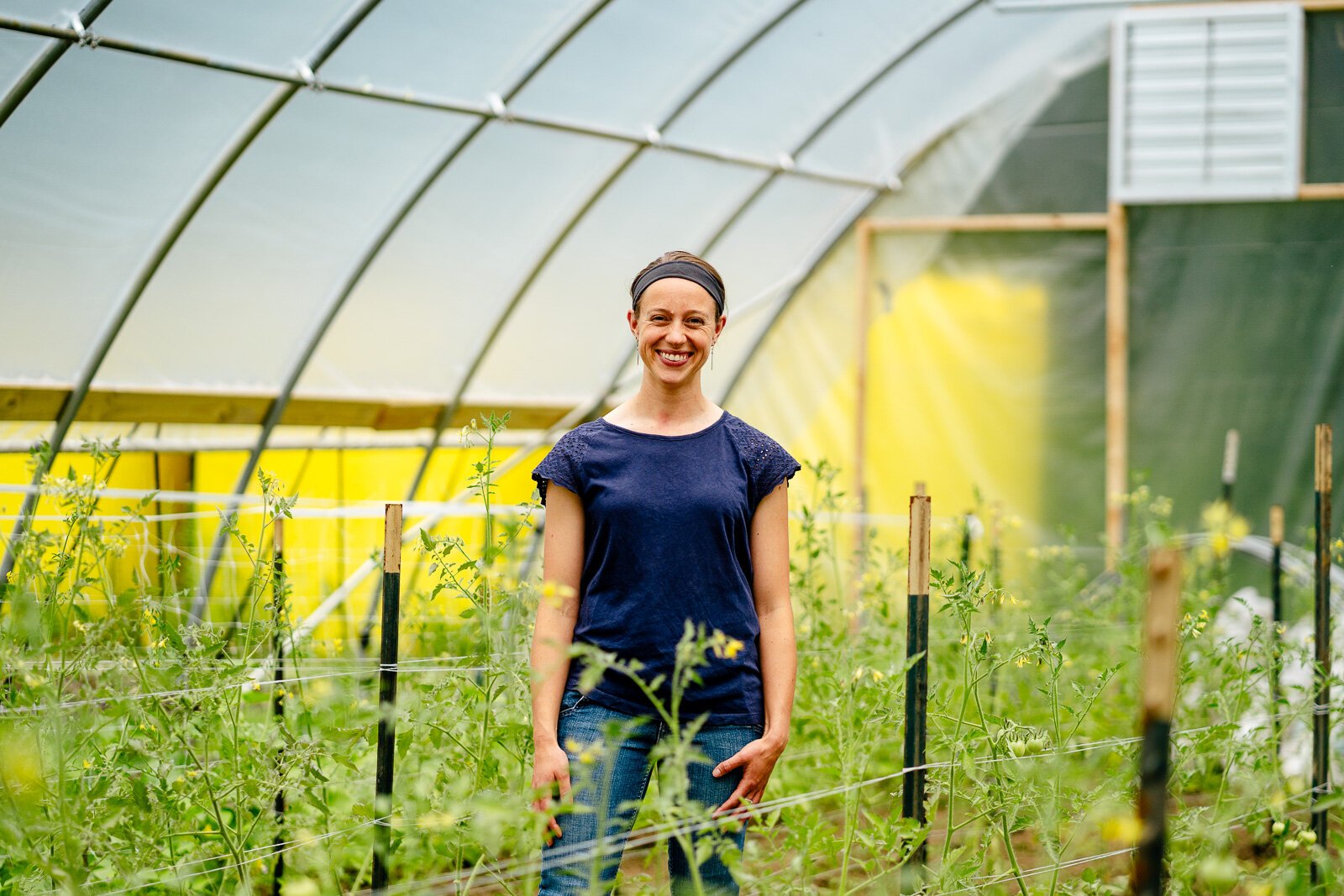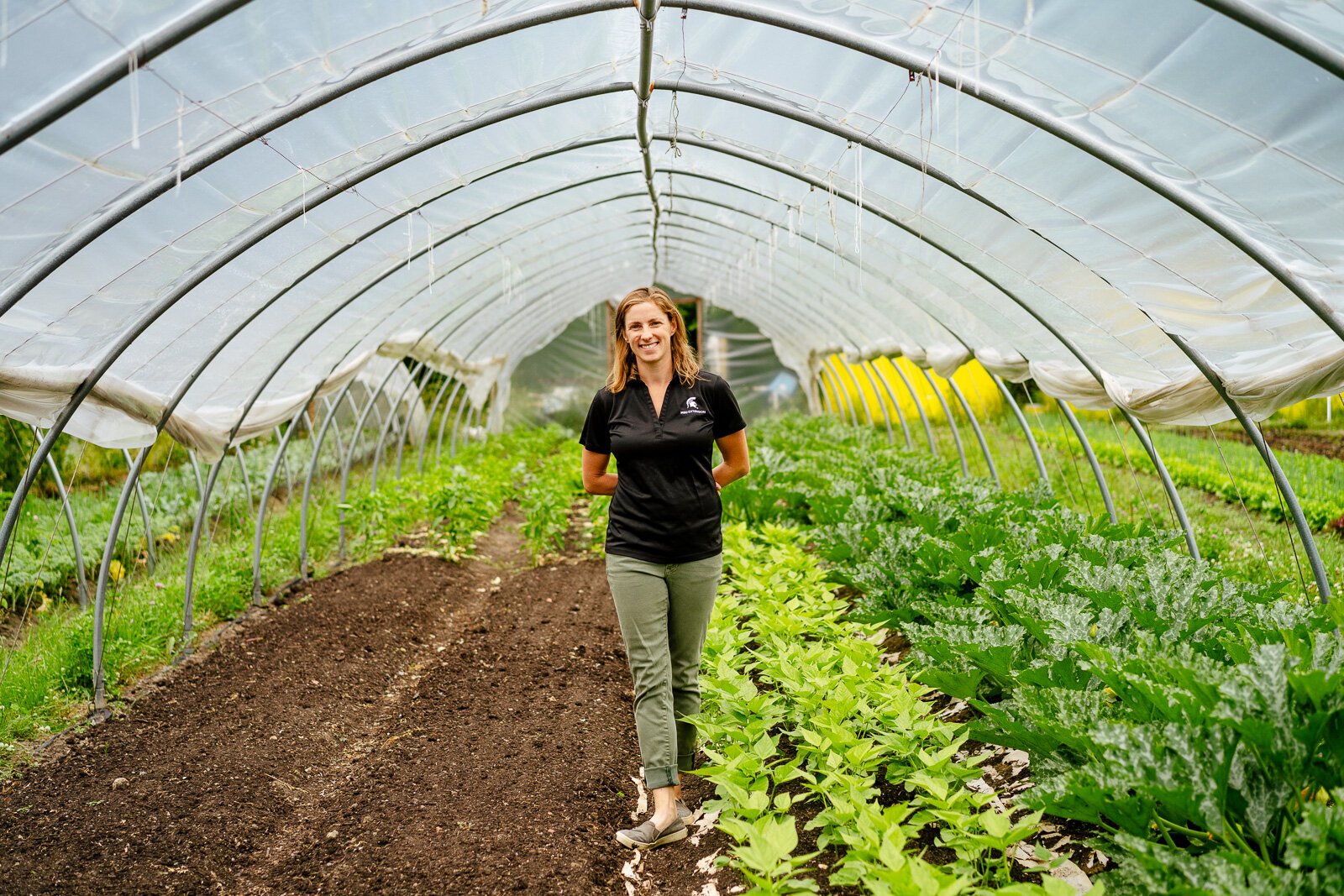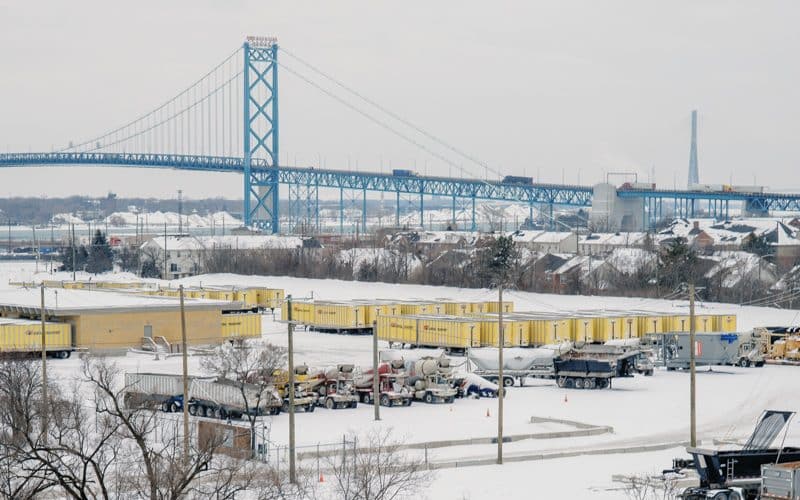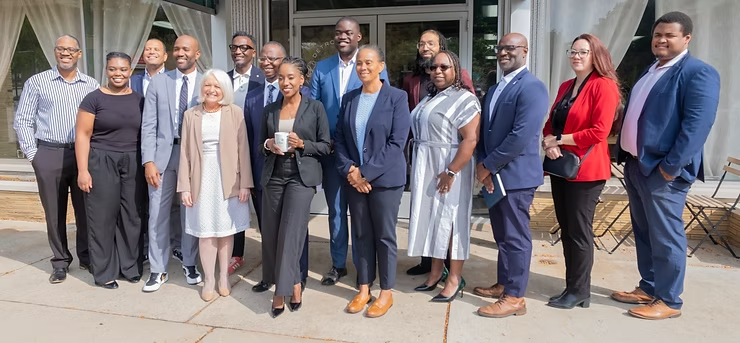Small Michigan farms have already adapted rapidly to address some of the challenges the pandemic has presented, and local food advocates see many opportunities ahead to continue strengthening local food systems.
This article is part of State of Health, a series about how Michigan communities are rising to address health challenges. It is made possible with funding from the Michigan Health Endowment Fund.
As COVID-19 swept the nation, supermarket shelves emptied, meat prices soared, and many people realized that a global industrial food system controlled by a handful of corporate players compares poorly to a robust local food economy.
“I always say that people often take food for granted. This pandemic has really shown us the importance of food,” says Winona Bynum, executive director of the Detroit Food Policy Council.
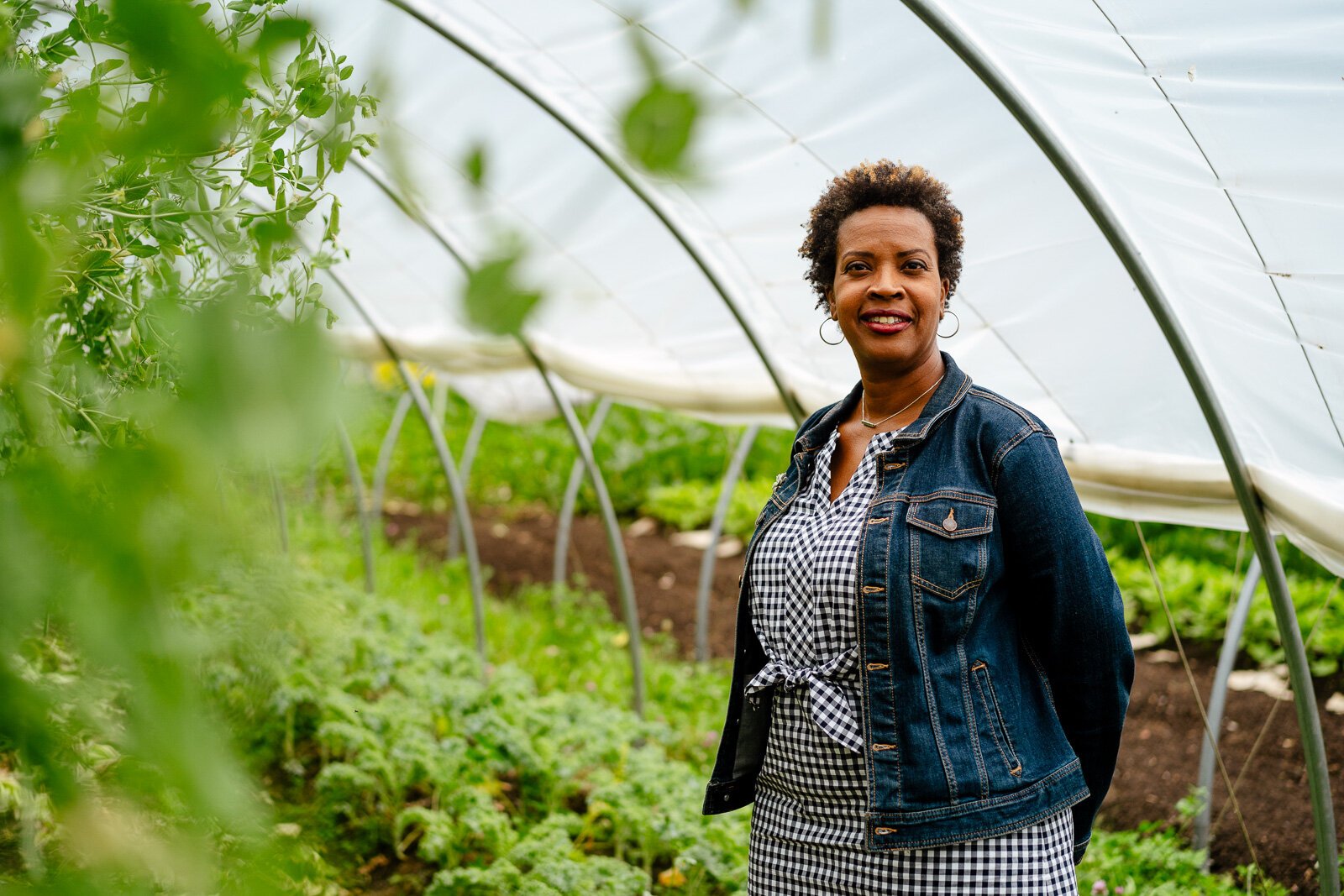
While the food supply chain continues to face many challenges at a national and international level, Michigan’s local food economy has gotten a boost from the pandemic. Small Michigan farms have already adapted rapidly to address some of the challenges the pandemic has presented, and local food advocates see many opportunities ahead to continue strengthening local food systems.
“This is an opportunity for people to turn to the local food system and understand that there is security with your food being produced locally and having a direct relationship with your farmers,” says Liz Gensler, outreach specialist for the Michigan Local Food Council Network and Michigan Good Food Initiative at Michigan State University’s Center for Regional Food Systems.
Exposing food system flaws
Meat shortages caused by employee illnesses at meatpacking plants are one widely noted example of how the pandemic has affected food systems. But the problems go far deeper than that, according to Kelly Wilson, director of community partners for Taste the Local Difference, a marketing agency for local food in Michigan.
“The pandemic has really shown the problem with consolidation within our food system,” Wilson says. “While the meat processing crisis has been reported on pretty heavily, there have also been problems within distribution channels.”
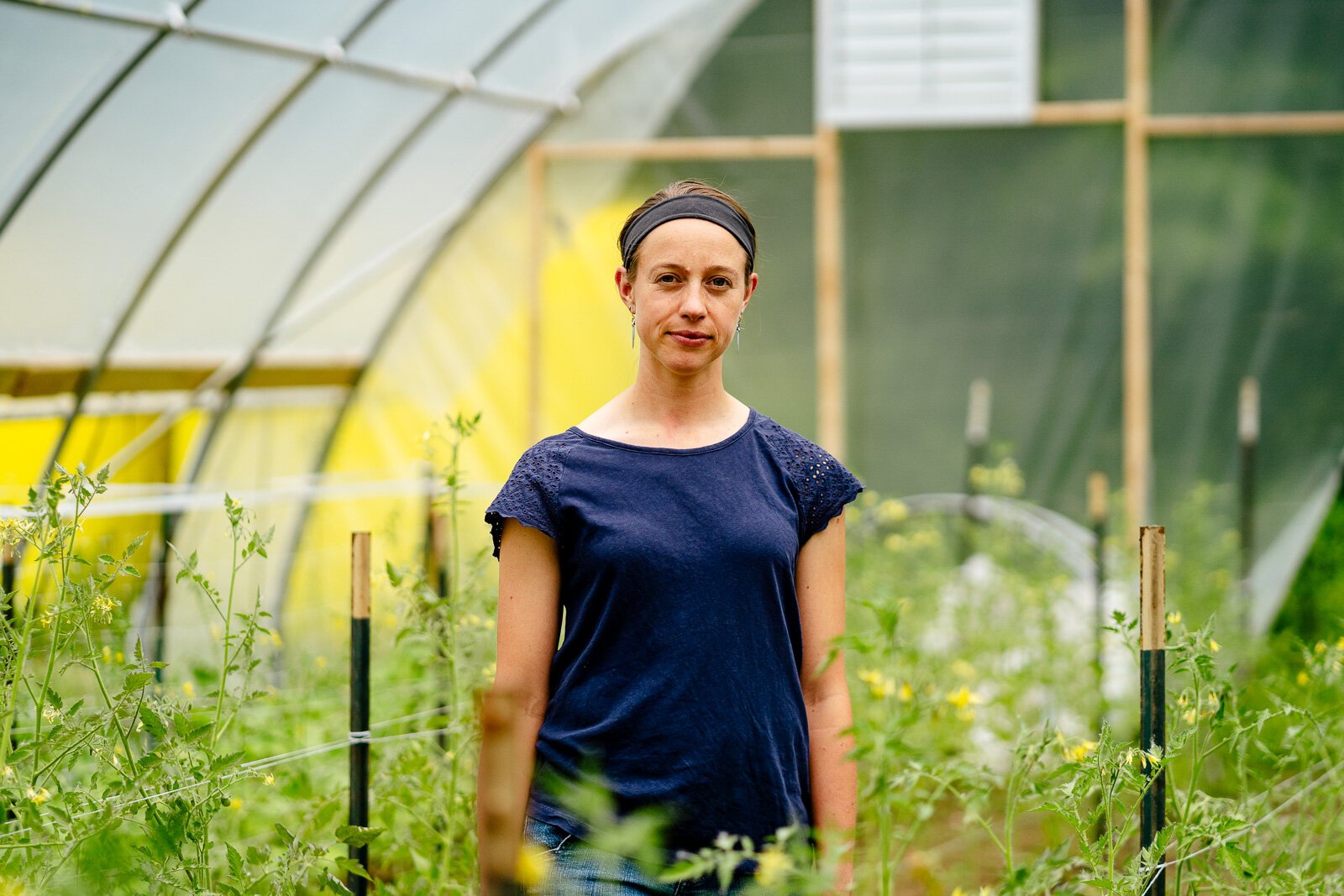
Wilson explains that specialization within those channels causes restaurants or institutions like schools and hospitals to be siloed from those that supply grocery and retail.
“When restaurants closed down and schools, universities, and hospitals reduced numbers, there wasn’t really a channel for that food,” she says. “We hear reporting on vegetables rotting in fields and milk being dumped.”
The pandemic has also shone a light on the industrial food system’s inherent racism — from the disproportionate rates of COVID-19 among African-Americans, who already experience high food insecurity, to the dangerous conditions that migrant workers face.
“In Michigan we produce a lot of specialty crops, fruits, and vegetables that require hand picking. We rely on migrant labor,” Wilson says. “This crisis has also exposed the lack of protection that those folks harvesting our crops really receive, how vulnerable they are to health problems based on their working conditions and housing.”
“A lot of things in the system of how we accommodate migrant workers and their legal status have been exacerbated,” Gensler adds. “They are afraid to get medical care. There is a language barrier. They may not understand that they are eligible for some programs and what protections are in place to help them.”
Michigan local food saves the day
While exposing these and other problems, the pandemic has also proven the value and resiliency of Michigan’s local food economies. Some farmers shifted their focus from restaurants to community supported agriculture (CSA) shareholders. Others began selling more meat, dairy, and produce directly to consumers and at farmers markets. With support from organizations like Taste the Local Difference, the Michigan Farmers Market Association (MIFMA), Michigan State University Extension (MSUE), and various county agencies, Michigan’s farmers transitioned to web sales platforms almost overnight.
“A lot of people who never thought to buy local are turning to farms, CSA shares, and web platforms that farmers did such a great job of transforming to. Within a week, they were up and running,” says Jae Gerhart, Washtenaw County Food Systems coordinator for the Michigan State University Extension (MSUE) and organizer of Washtenaw County’s Local Food Summit. “Our local food system is so resilient. I’m so proud of our farmers who took a risk and made changes so quickly.”
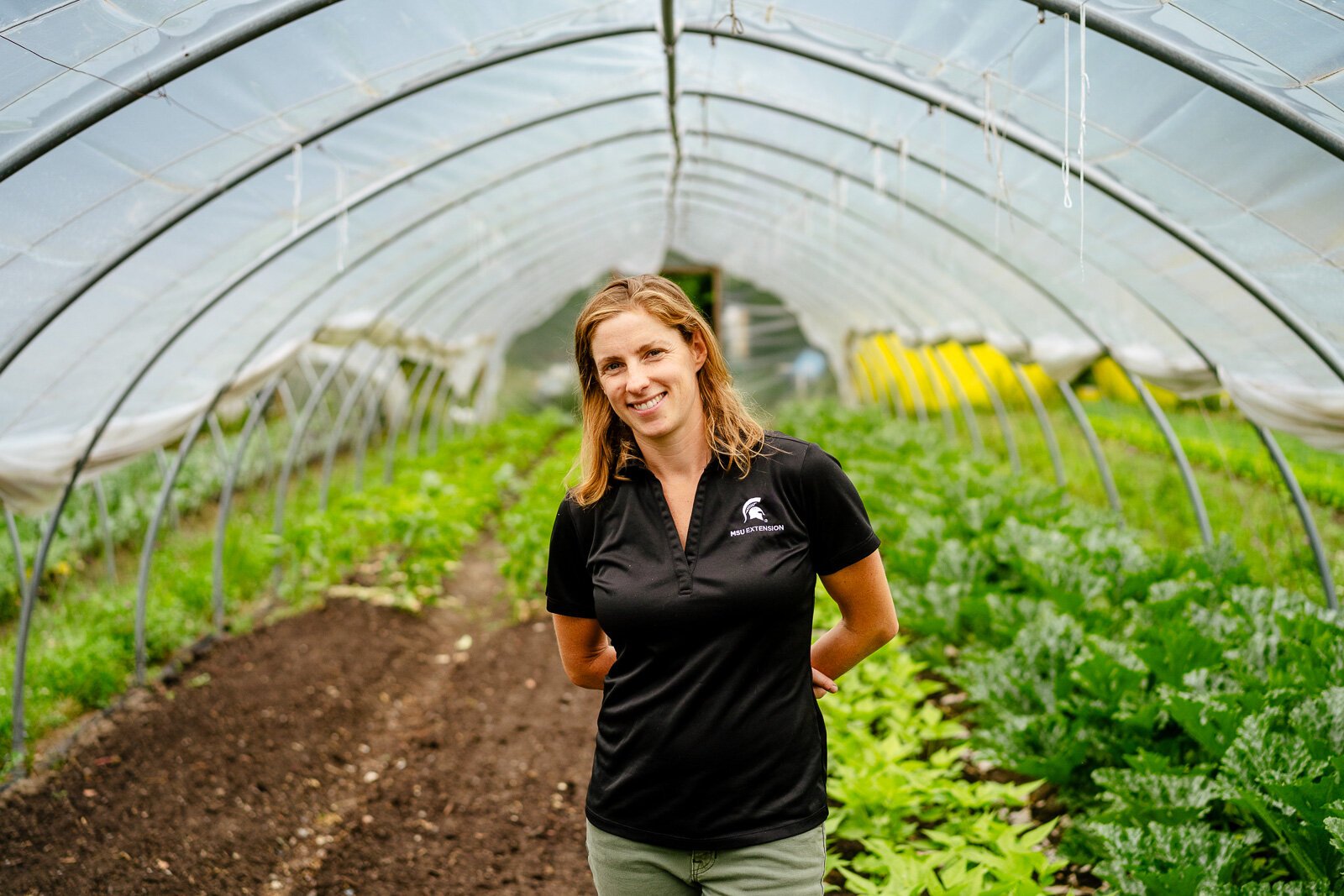
For example, Wilson reports that Traverse City’s Sara Hardy Farmers Market did $20,000 worth of online sales in one four-day period. The resulting sales kept farmers afloat while introducing an entirely new market segment to locally grown foods.

“People are seeing the advantage of getting your food locally,” Gensler says. “MIFMA has done a great job helping farmers markets to set up physically distanced spaces, online ordering, and curbside pickup. Open-air spaces feel healthier and are a safer space to be in.”
In Detroit, Bynum reports that Eastern Market is experiencing tremendous traffic. In addition to its brick-and-mortar location, it operates 20 mobile pop-up farm stands each week from June through September.
“People are really looking for those local sources in this time and wanting to connect with them in a large way,” she says. “Some of the urban farmers and chefs have banded together to make sure their neighbors were fed using local resources. Keep Growing Detroit is seeing a rise in people wanting to have family gardens.”
“A lot of people have started gardening, maybe for the first time,” Wilson adds. “They were motivated by a sense of necessity and uncertainty. This is a great opportunity for folks to get connected to their food and learn what goes into it.”
Local food grows hope for the future
Local food advocates hope that Michiganders will continue to seek local food, small farms, and their own gardens as sources of healthier food.
“Long term, we need to address this consolidation issue. We need to interpret antitrust laws honestly. And we need more skilled labor in custom processing, training programs for knife skills, and how to break down an animal,” Gerhart says. “I’m seeing everyday people starting to think about these things. My hope is that we have opportunity to do policy change — not only to make the food system more localized, but better and more ethical in many ways. I hope people will have learned something and support policy change in the future.”
Advocates also hope to use this moment to build racial equity in farm fields, on processing plant floors, and through equitable access to resources.
“Our food system was built on land stolen from Native Americans and wealth built on slave labor. That history is still the underbelly of our food systems today,” Gerhart says. “To have the best food system, we have to come to terms with those deep-seated parts of our past that have been very influential in the food system, more so than in any other system.”
Wilson believes another essential part of creating an equitable, locally-based food system is to increase access to land, for small farms in general and farmers of color in particular. Southwest Michigan, for example, has an egregious history of expelling Black farmers from their land.
“Looking at each step of the way, taking the food system as a system, we need to be making sure that at every step there is equity, that people are treated well, [and] that best policies are in place to support a strong, equitable local food system,” Bynum says. “This is a time when we can get people to focus on that and come up with some great solutions.”
While the pandemic has exposed deep flaws in the ways we get our food, it’s also brought out promising new developments in local food systems – and Wilson sees great potential for continuing to build resiliency in those systems.
“Right now, a lot of new people are engaging in local food for the first time. It’s a real opportunity for education and engagement to keep those folks in the local food community,” she says. “Our work is more critical than ever before.”
A freelance writer and editor, Estelle Slootmaker is happiest writing about social justice, wellness, and the arts. She is development news editor for Rapid Growth Media, communications manager for Our Kitchen Table, and chairs The Tree Amigos, City of Wyoming Tree Commission. Her finest accomplishment is her five amazing adult children. You can contact Estelle at Estelle.Slootmaker@gmail.com or www.constellations.biz.
Photos by Nick Hagen except Liz Gensler photo courtesy of Liz Gensler.
